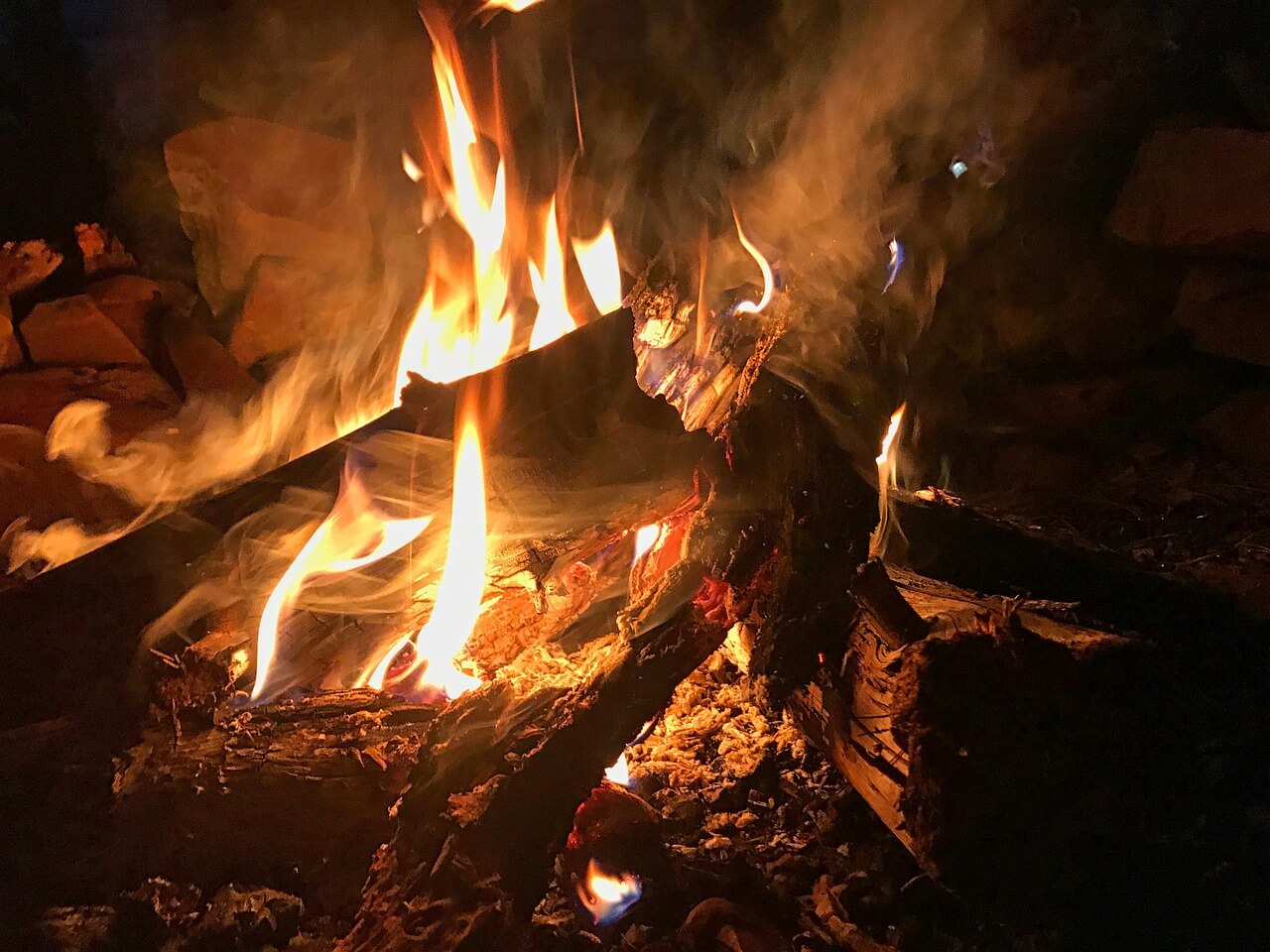All Fired Up? Not When You Follow RV Fire Safety Rules

FIRE! Is there anything that gets our attention like someone yelling that word? And rightly so; the thought of our home burning to the ground is a call to action. In fact, hearing that word causes that fight or flight we often hear about. There’s no time to discuss the matter; you and your family must do something. Before all else, teach everyone in your party the safety rules.
Woodland Creek RV Park takes fire seriously. Don’t set one foot in your RV for the first time until your entire family understands fire and how deadly it can be.
The Danger of Fire in an RV
It’s all too easy to forget how fast any RV (trailers and motorhomes) will burn. They are almost always made of fiberglass with flammable foam insulation and wood frames. As a result, a fire can burn your RV to the ground in minutes. Minutes! If you’re inside, your only job is to get out. Forget about saving anything inside.
Here’s a quick look at how fast an RV can burn: https://www.rvtravel.com/fast-rv-burns/.
According to the National Park Service, about 2000 RVs burn each year.
Fires can start at home, with your trailer parked next door, while you’re eating, playing, or sleeping inside, while you’re away (do you leave pets inside?), or even while driving down the highway.
What can you – and your family – do to reduce the danger of fire? Some recommendations are the same as they’d be at home, while others are unique to RV travel and camping. We could go on and on about cautions, but here are a few things to think of.
Reducing the Risks – Just Like Home
- Please ensure you have smoke and carbon monoxide detectors and that they work! Batteries should be fresh. Test them, even though the noise can be annoying. And don’t pull out the battery every time you make toast! There’s a chance your smoke detector will go off, so use your best judgment.
- Watch what you’re cooking, whether it’s inside or outside. We all hear stories of people cooking outdoors and realizing there’s a missing ingredient. The person turns down the grill and runs to the store two blocks away. By the time he gets back, his grill is in flames and has thoroughly toasted his campsite and the back of his $300,000 motorhome. And just like that, his relaxing weekend getaway is burned to a crisp.
- Don’t overload your electrical system. Older RVs sometimes have too few outlets, and it’s tempting to use power strips that allow you to add extra appliances. If you’re lucky enough to have all the luxuries of home, don’t operate the dryer, the microwave, the coffee pot, a hairdryer, and an electric water heater at the same time. Again, use common sense.
- Your stove should be kept free of flammable items such as towels and paper products.
On the Road
- Turn off the propane before you drive, even if you have an absorption refrigerator. If you keep the door closed, the food in your freezer or refrigerator will stay cold all day. Especially make sure it’s off when you’re fueling.
- Check your tires before you leave in the morning and at every stop. Check your brakes when driving on hills – you don’t want them to catch fire.
- Be careful where you park. Don’t park on vegetation that can catch fire from your hot catalytic converter or muffler.
While Camping – At the RV Park
- Check the pedestal that supplies your electricity and the cord that attaches you to the pedestal. Not all RV parks have top-quality electrical systems.
- Remember the grill story above? You should never use a grill (propane, charcoal, or wood) near your RV, but some RVs now have direct connections between propane tanks and grills attached to the camper. Not a good idea. Another bad idea: cooking under your exterior awning, even when it’s raining.
- Shut off everything you can when you leave for the day. Most good RV parks forbid leaving a pet in your RV when you leave – do you now understand why they have this rule? If you want to use a slow cooker during the day, make sure it’s on a non-flammable surface and connected only to a wall outlet, not an extension cord.
But What if a Fire Starts in Your RV?
- You must carry three fire extinguishers, preferably of the ABC type, that can knock down different types of fires. Keep one at your door, one in the back, and one outside, stored in a compartment or your tow vehicle.
- If a fire starts and you can grab and use the extinguisher within literal seconds, use it on the fire if it’s minimal. The real reason you keep extinguishers in your RV is so that you can fight your way to the door and get out.
- Many RVs have a window that can function as an emergency exit. Make sure that everyone traveling with you knows where the exit is located and how it works. This can be a challenge for children; they need to know how to use the exit but should understand that it’s only for emergencies.
- Some large motorcoaches have emergency exit doors. Again, ensure everyone knows it’s there and how to open it.
- Do fire drills!
- If you have fellow travelers with disabilities, think about how to get them out safely.
Choosing the right RV park has much to do with a successful trip. Call us at Woodland Creek RV Park today to help you reserve your spot. Have a plan and train all of your passengers, and you can create memories to last a lifetime.
Remember, RV travel is supposed to be fun and can and will be, as long as you follow fire safety rules.

